[ad_1]
Behind the famous Montessori schools is Maria Montessori, a renowned Italian physician and educator. Her approach to education focused on children’s natural curiosity and independent learning. Montessori’s quotes celebrate the joys of education, as well as ways to grow as an educator. She shared some incredibly inspirational wisdom during her lifetime, and we’ve compiled 50 of our favorite Maria Montessori quotes below.
Our Favorite Maria Montessori Quotes
The child who concentrates is immensely happy.
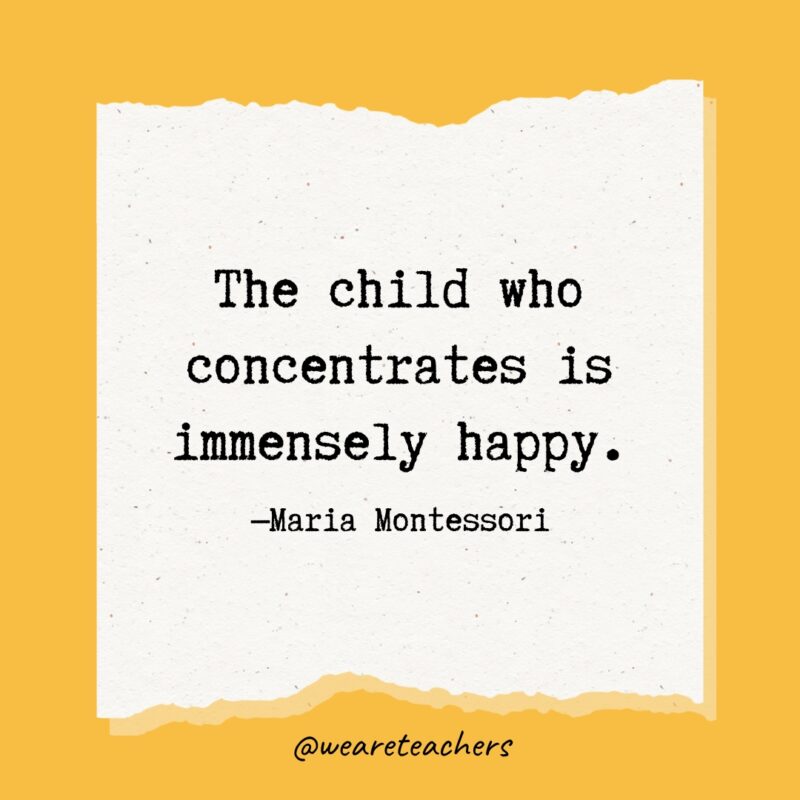
The hand is the instrument of intelligence.
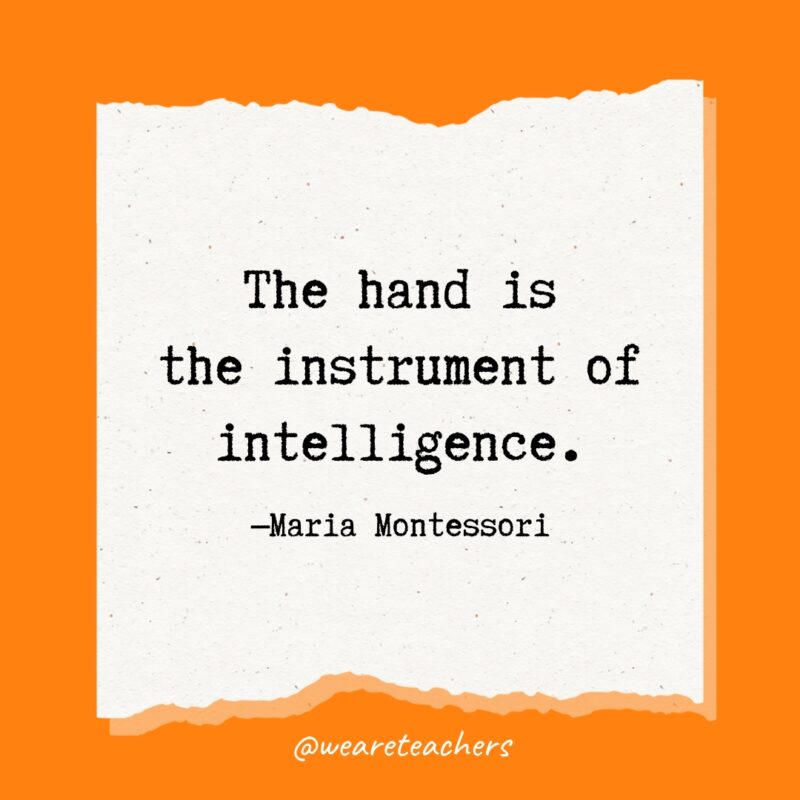
The child gives us a beautiful lesson—that in order to form and maintain our intelligence, we must use our hands.
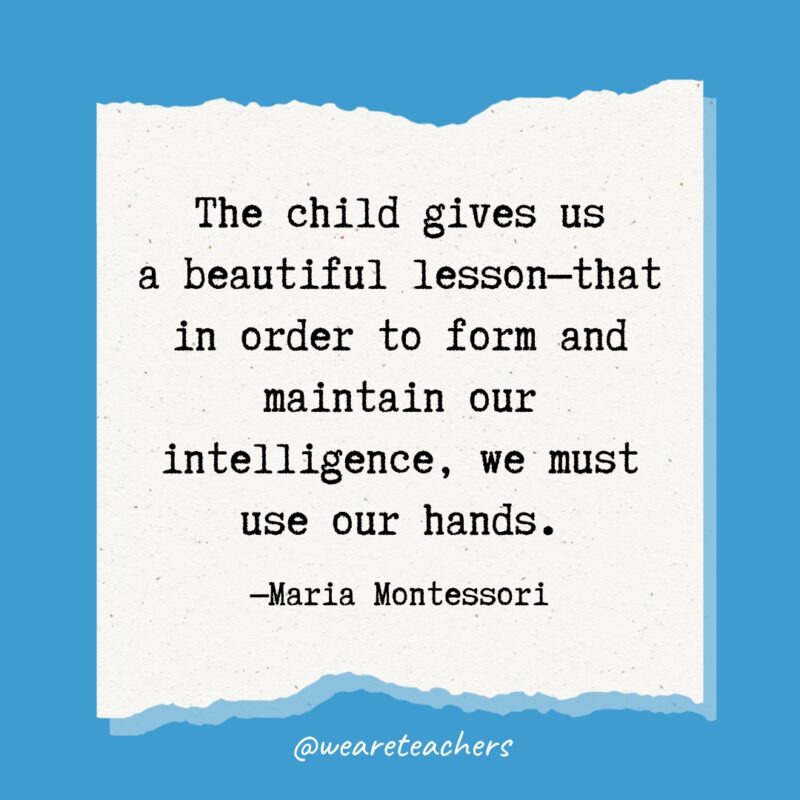
The child’s sensibility to absorb language is so great that he can acquire foreign languages at this age.
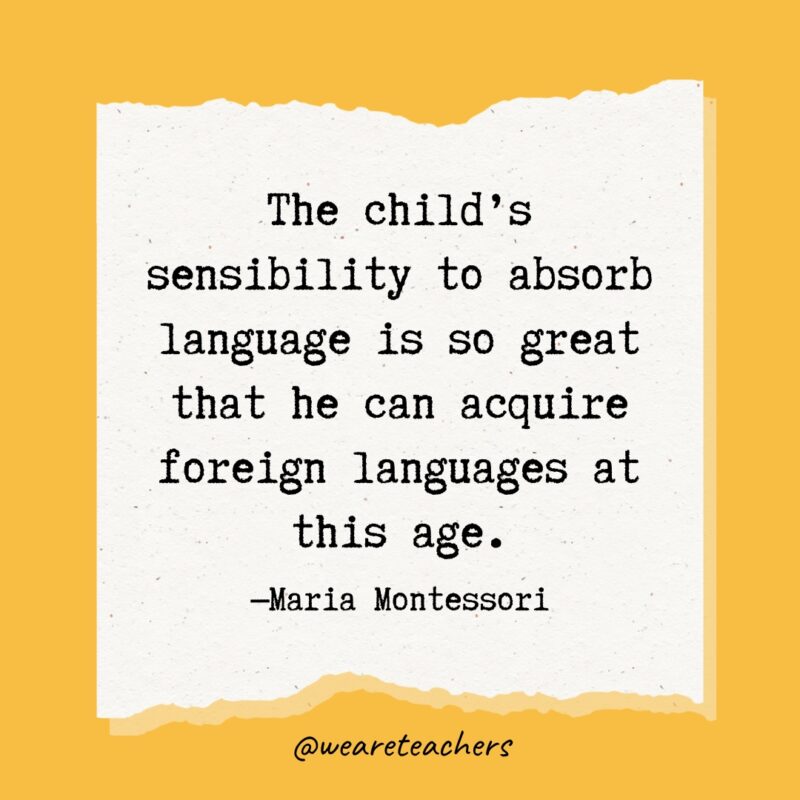
Children have a kind of instinct, a special sensibility, which urges them to acquire new words. Between three and five years especially, the child’s mind continues to absorb words.
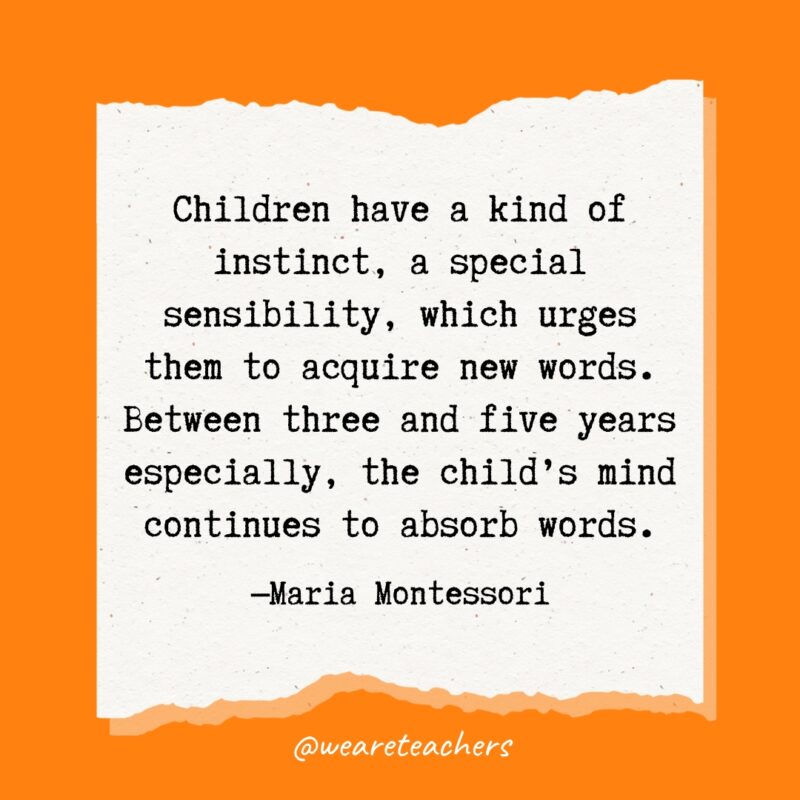
Perhaps a great future leader or a great genius is with us and his power will come from the power of the child he is today. This is the vision that we must have.
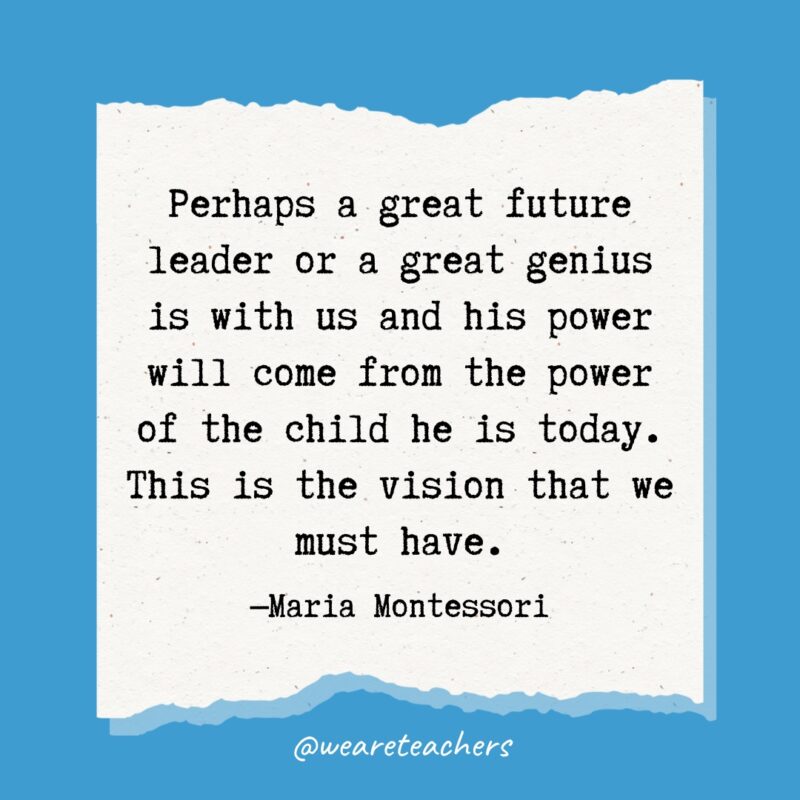
A man does not just happen; he does not just grow like a flower. A child does not act as an adult. We apply our energies, our maturity, to do something, but a child acts in accordance with nature in order to construct a man.
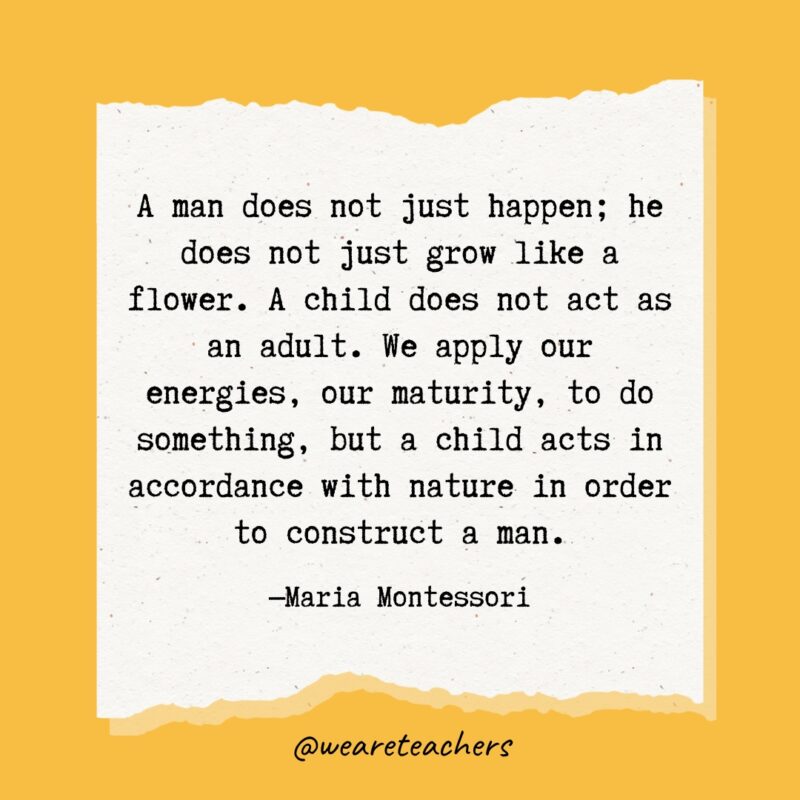
Free activity makes children happy. We can see how happy they are, but it is not the fact that they are happy that is important; the important thing is that a child can construct a man through this free activity.
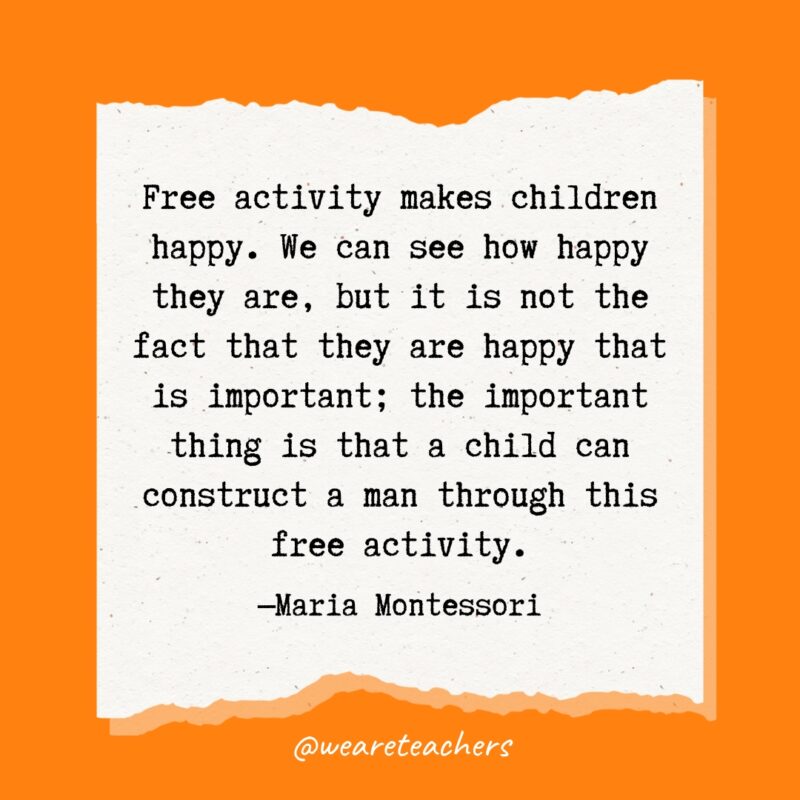
At this age (between 1½ and 2½ years), children have a need to develop independence.
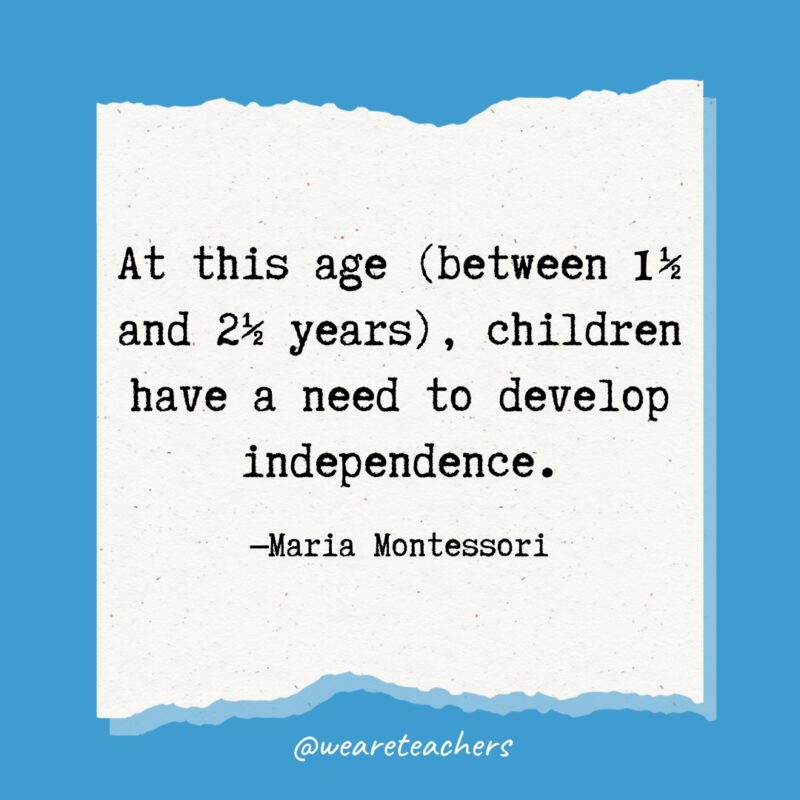
When the child has mastered equilibrium, he needs to practice it through exercise, so that his sense of balance may be perfected. It is only logical that a child must walk if he is to do this.
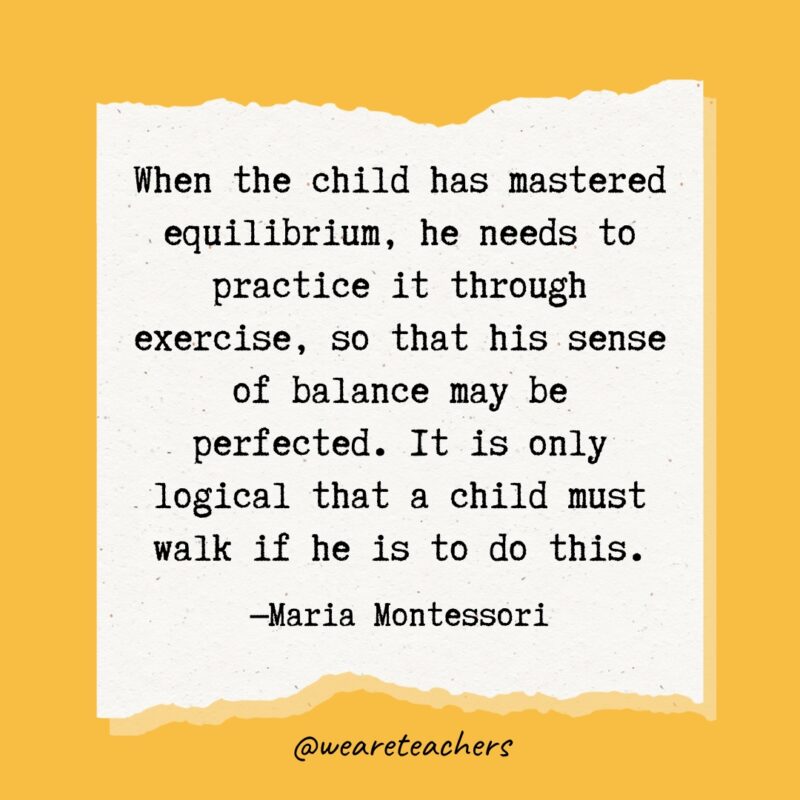
We must respect the child and he must understand that he is respected. He needs to be prepared for everything that is going to be done for him.
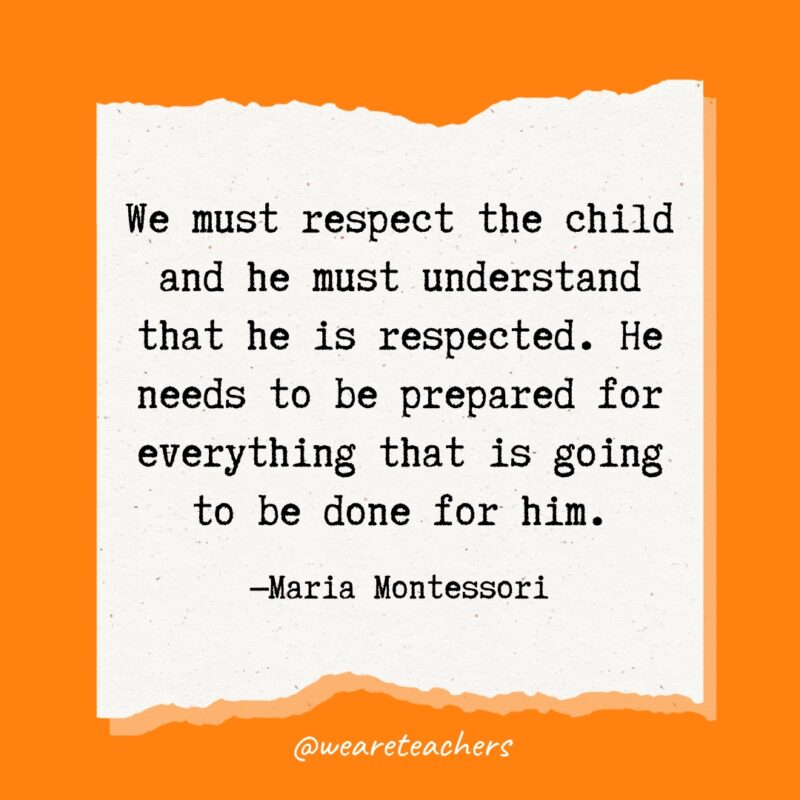
Democracy begins at birth. The child must know what is going to happen to him, that he will not be seized suddenly, that his permission will be asked first.
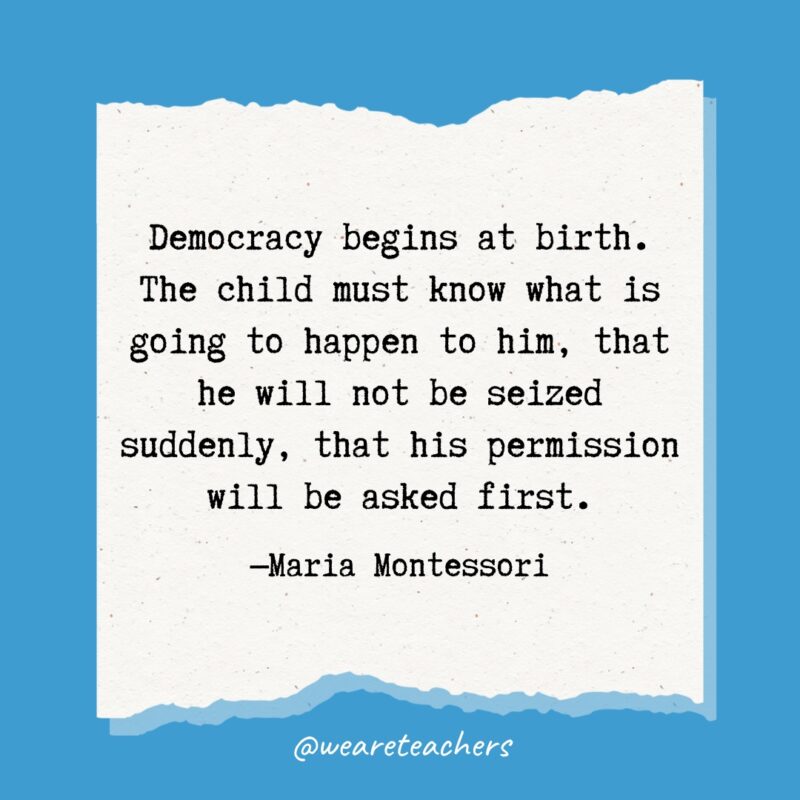
Never help a child with a task at which he feels he can succeed.
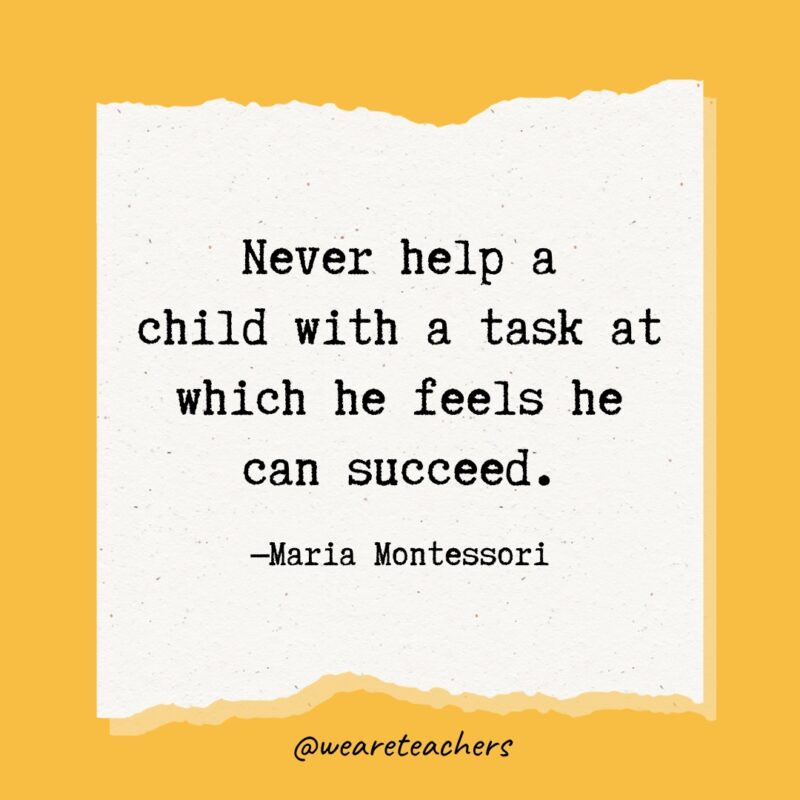
The greatest sign of success for a teacher is to be able to say, “The children are now working as if I did not exist.”
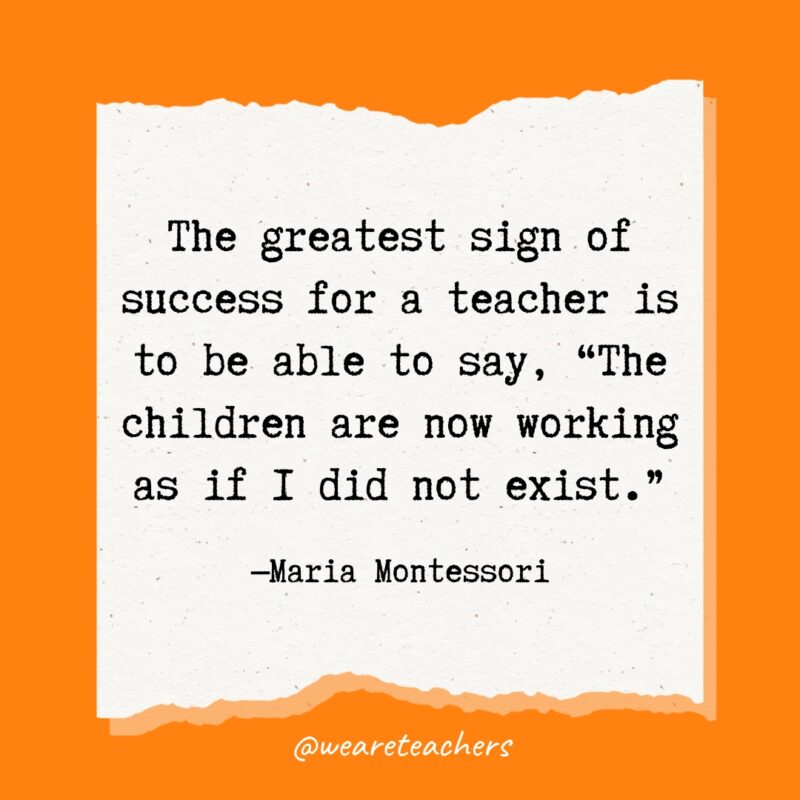
Establishing peace is the work of education; all politics can do is keep us out of war.
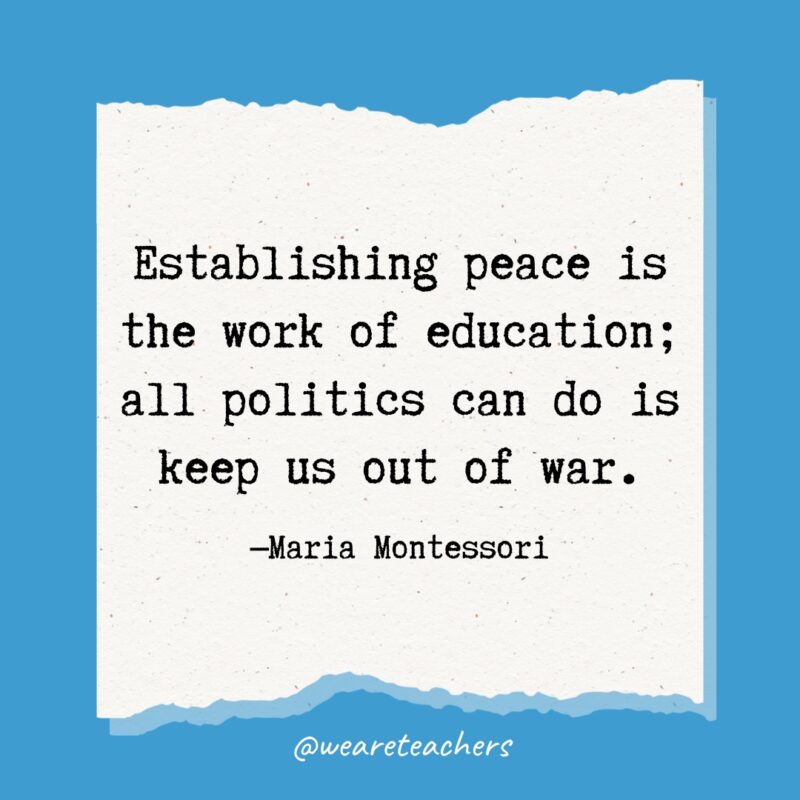
Within the child lies the fate of the future.
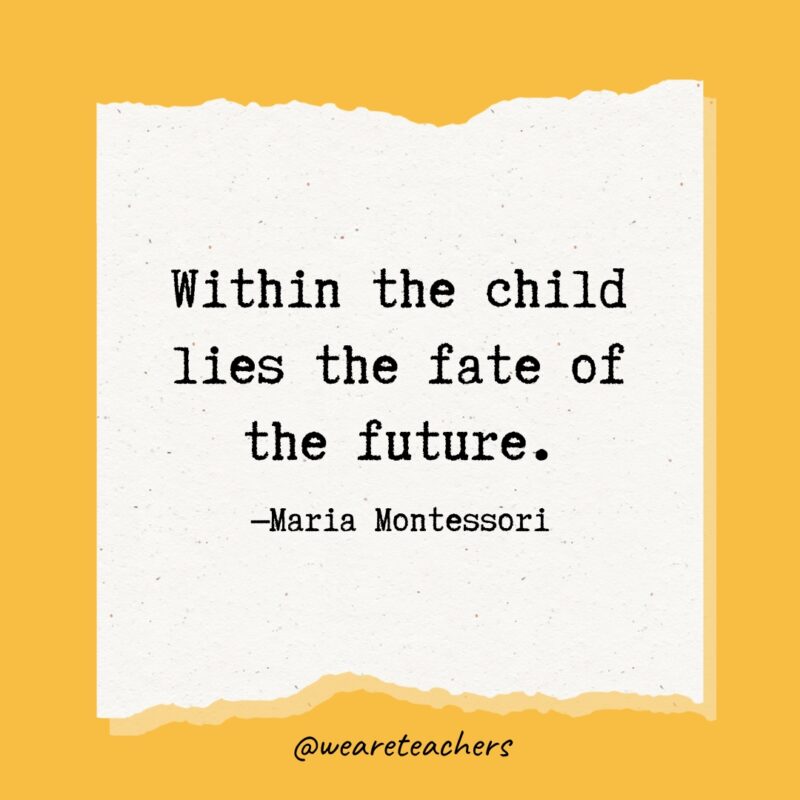
Of all things, love is the most potent.
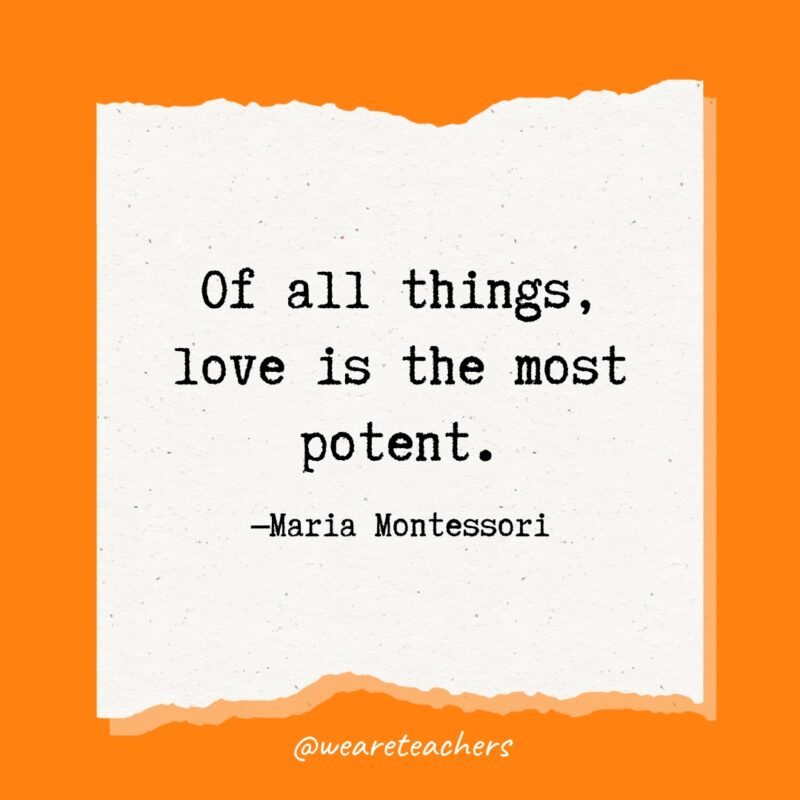
No social problem is as universal as the oppression of the child.
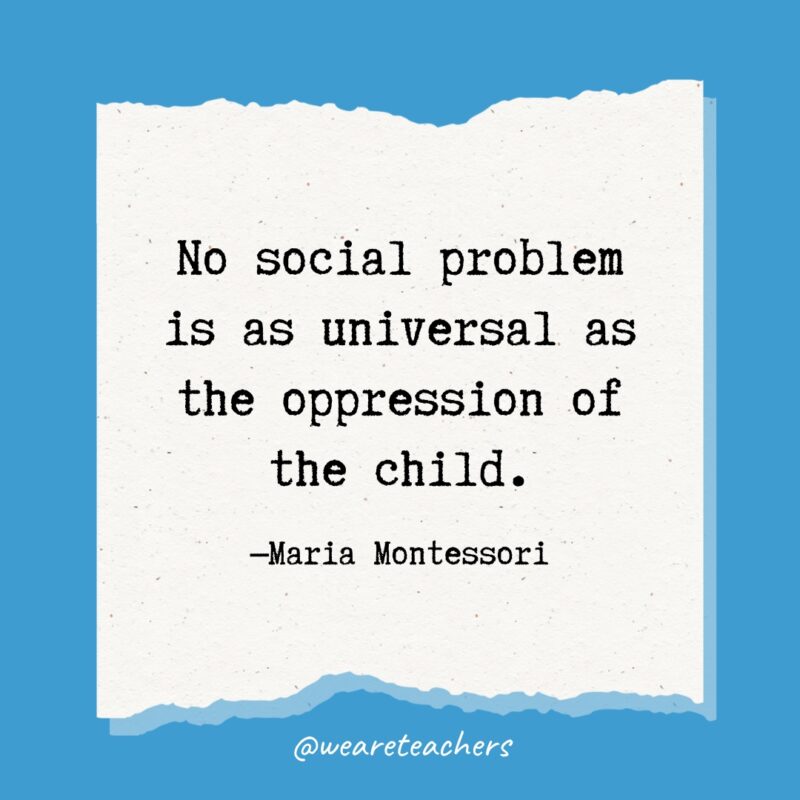
Do not erase the designs the child makes in the soft wax of his inner life.
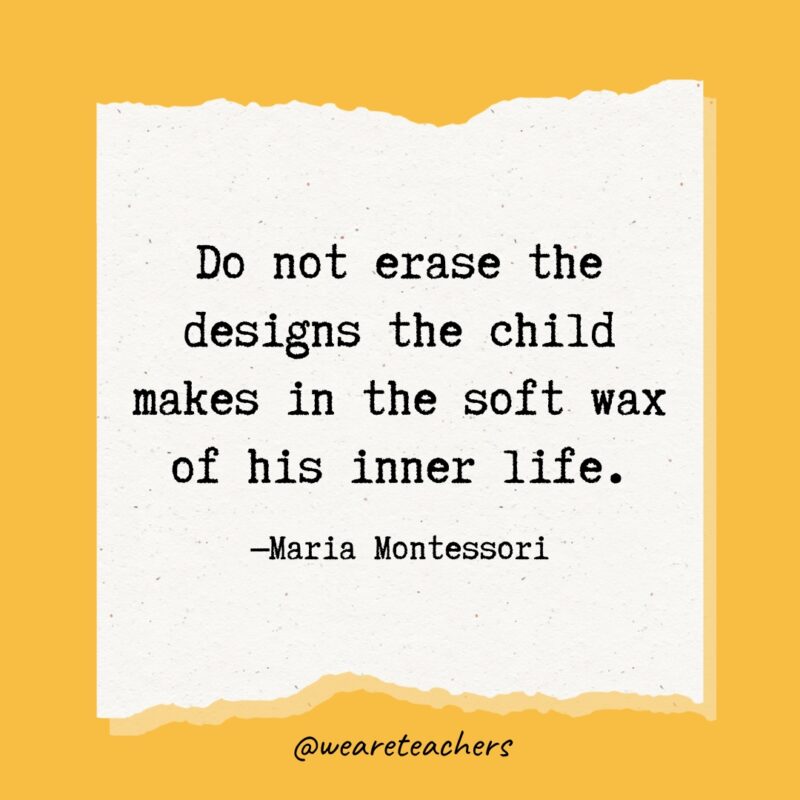
Children are human beings to whom respect is due, superior to us by reason of their innocence and of the greater possibilities of their future.
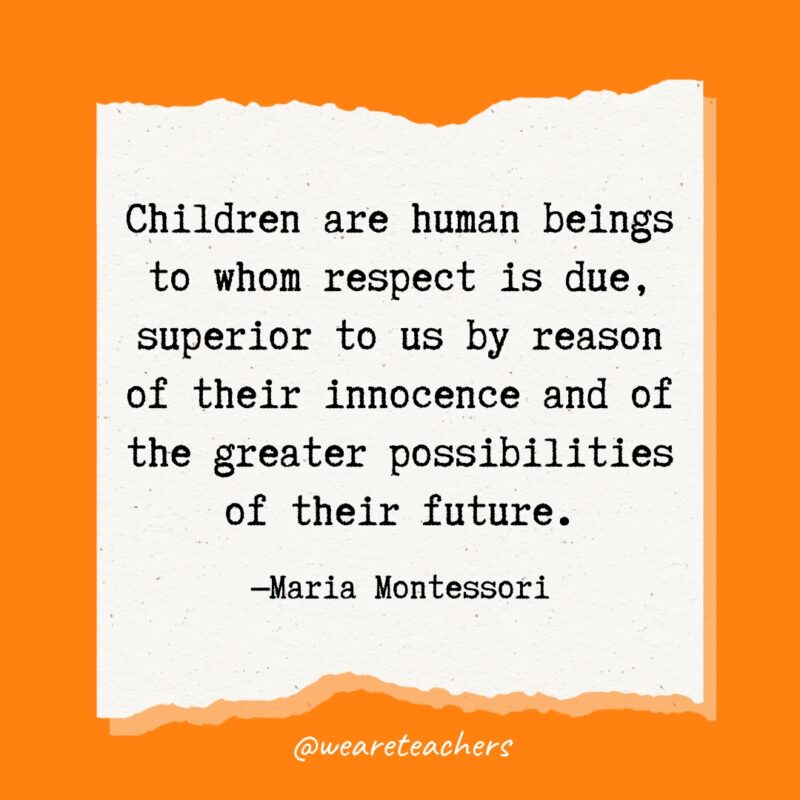
The things he sees are not just remembered; they form a part of his soul.
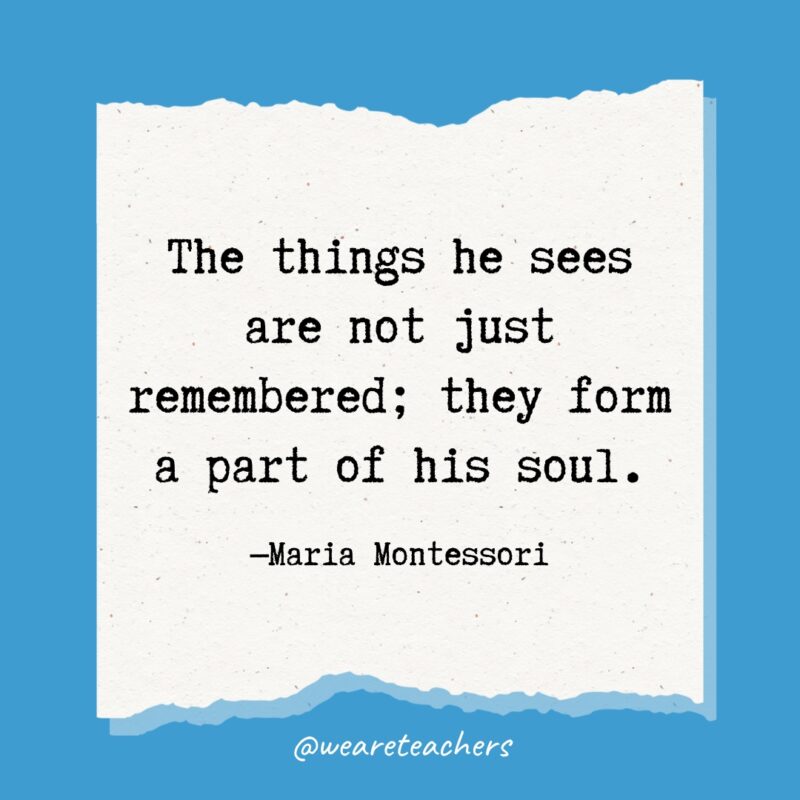
Respect all the reasonable forms of activity in which the child engages and try to understand them.
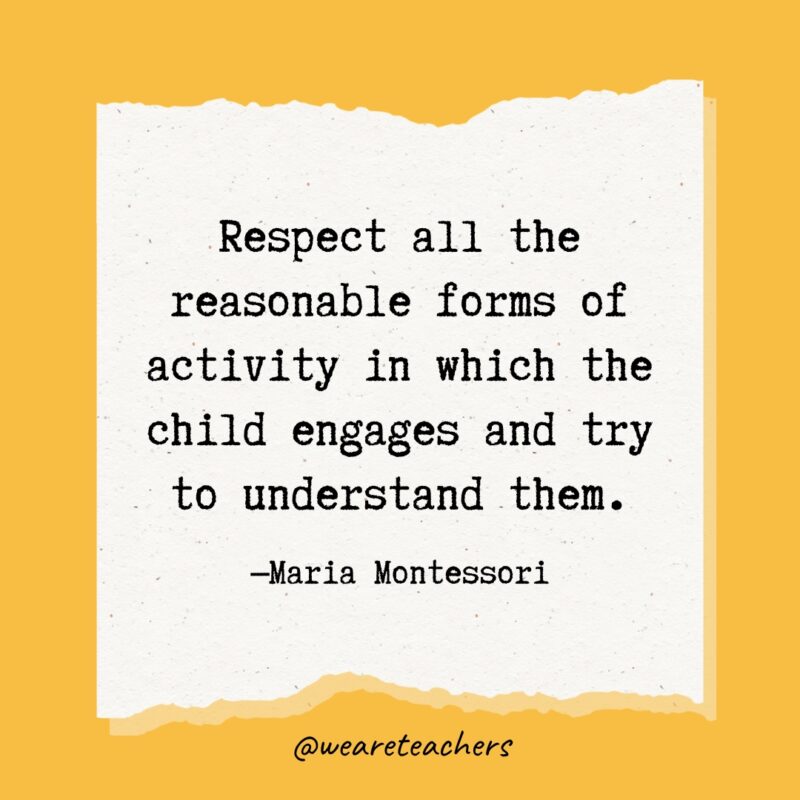
To stimulate life, leaving it free, however, to unfold itself … that is the first duty of the educator.
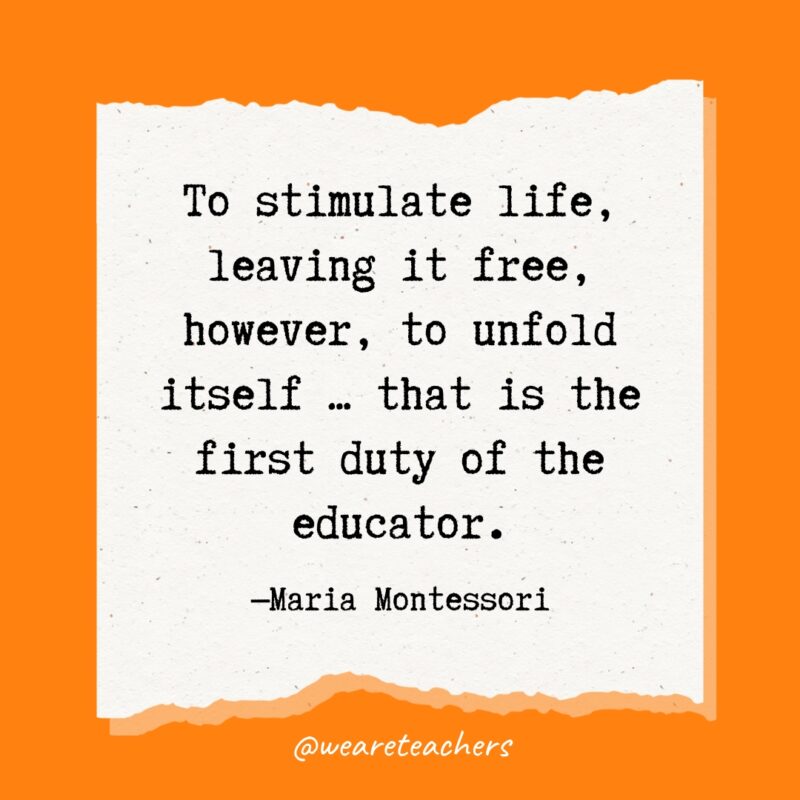
The environment must be rich in motives that lend interest to activity and invite the child to conduct his own experiences.
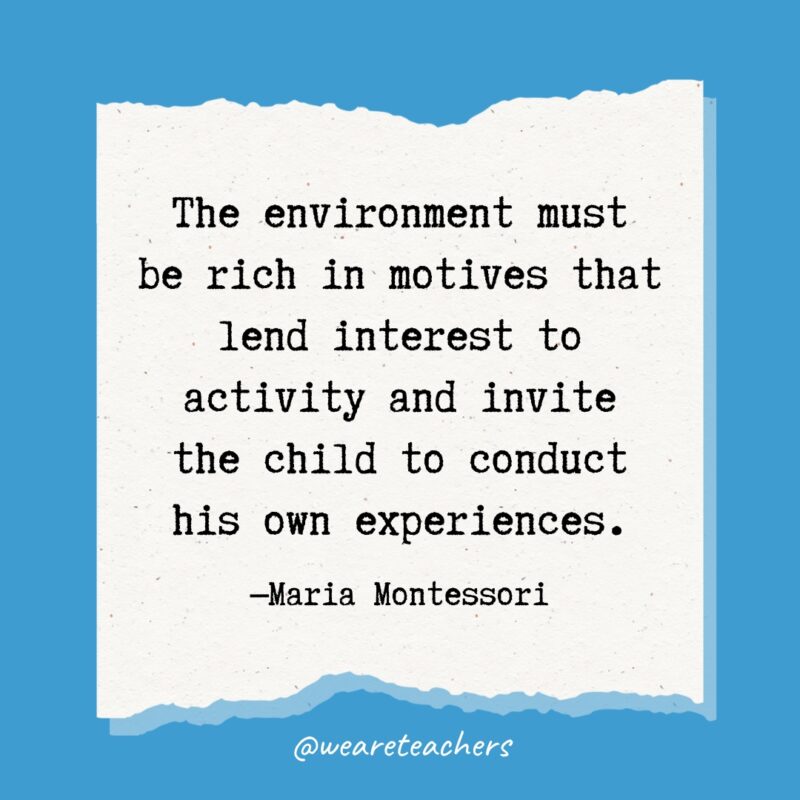
The task of the educator lies in seeing that the child does not confound good with immobility and evil with activity.
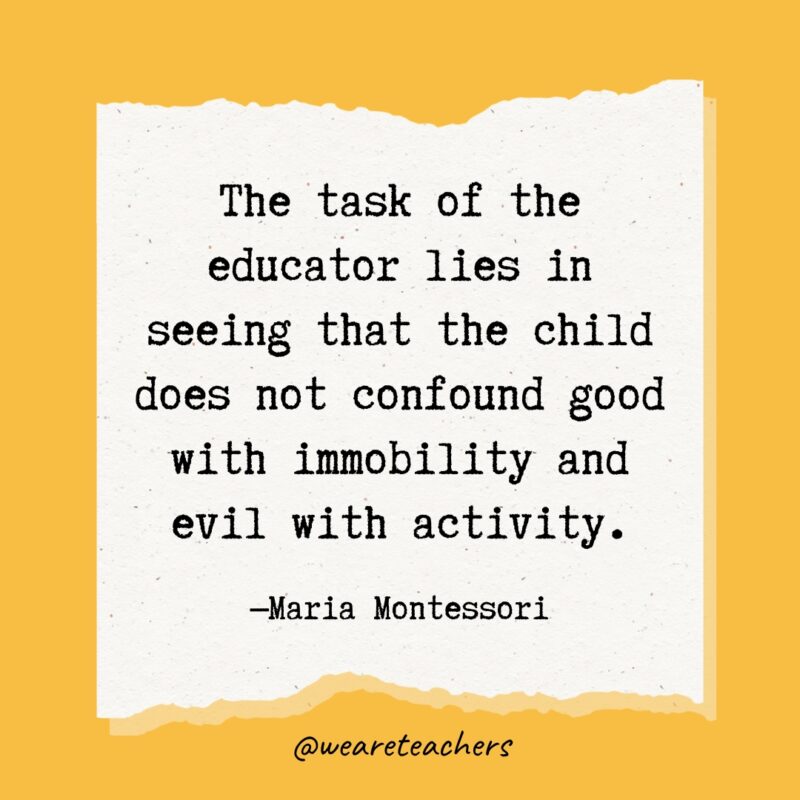
The essence of independence is to be able to do something for one’s self.
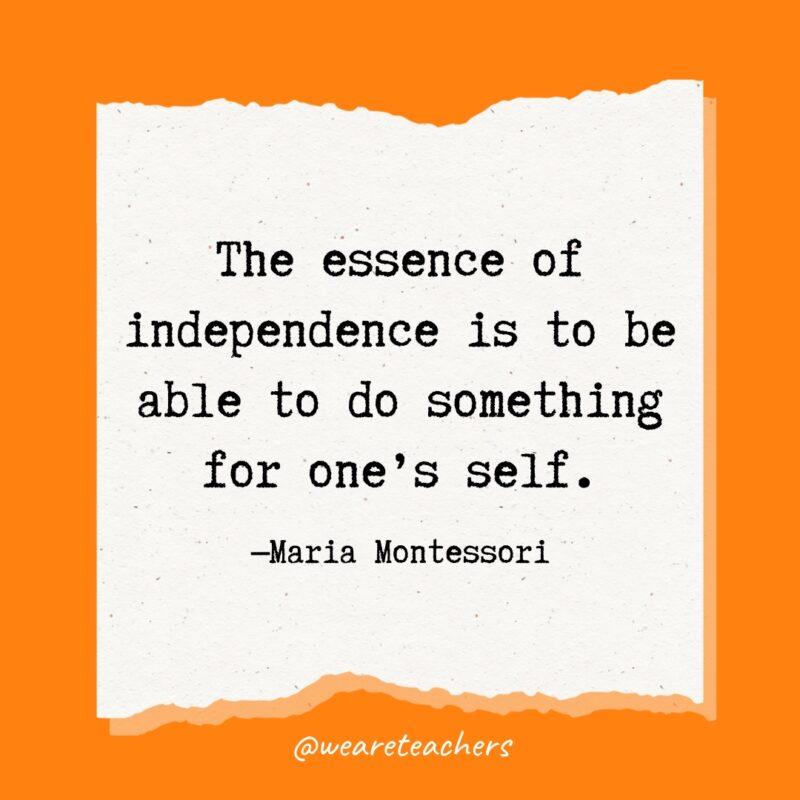
It is true that we cannot make a genius. We can only give to each child the chance to fulfill his potential possibilities.
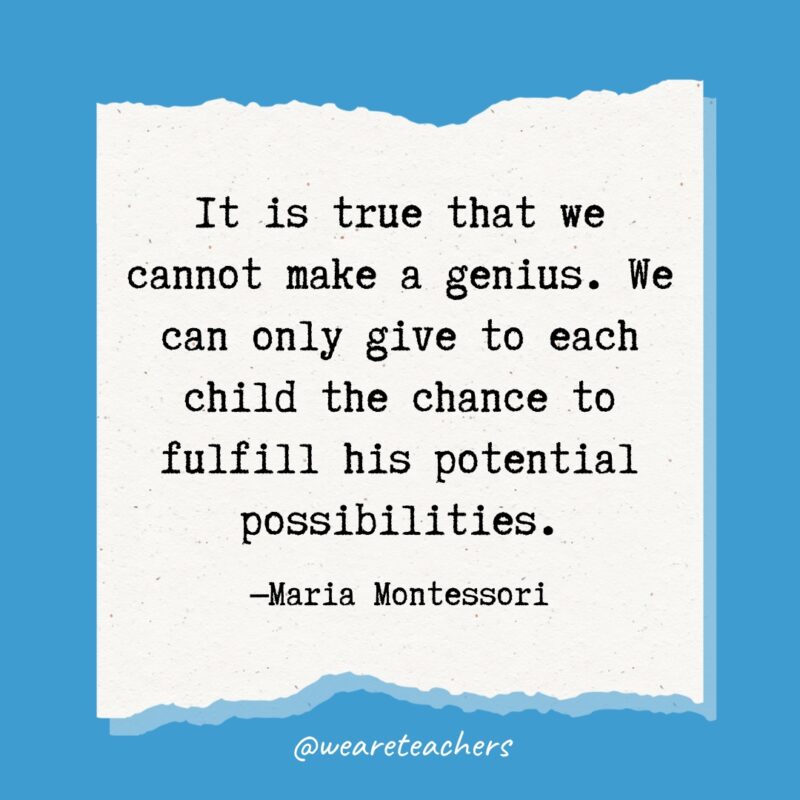
We shall walk together on this path of life, for all things are part of the universe and are connected to each other to form one whole unity.
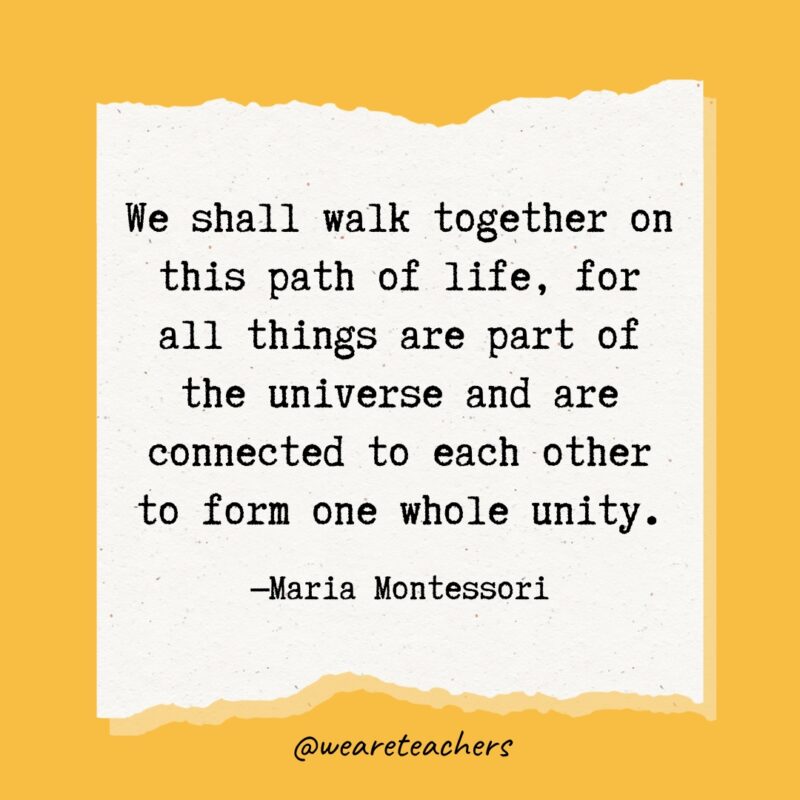
The best instruction is that which uses the fewest words sufficient for the task.
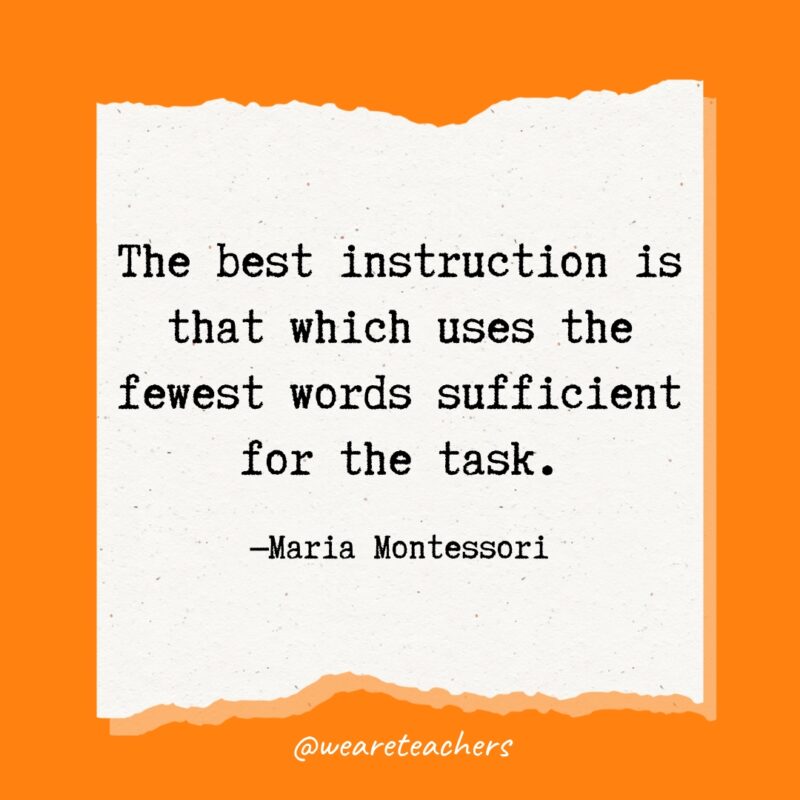
Children become like the things they love.
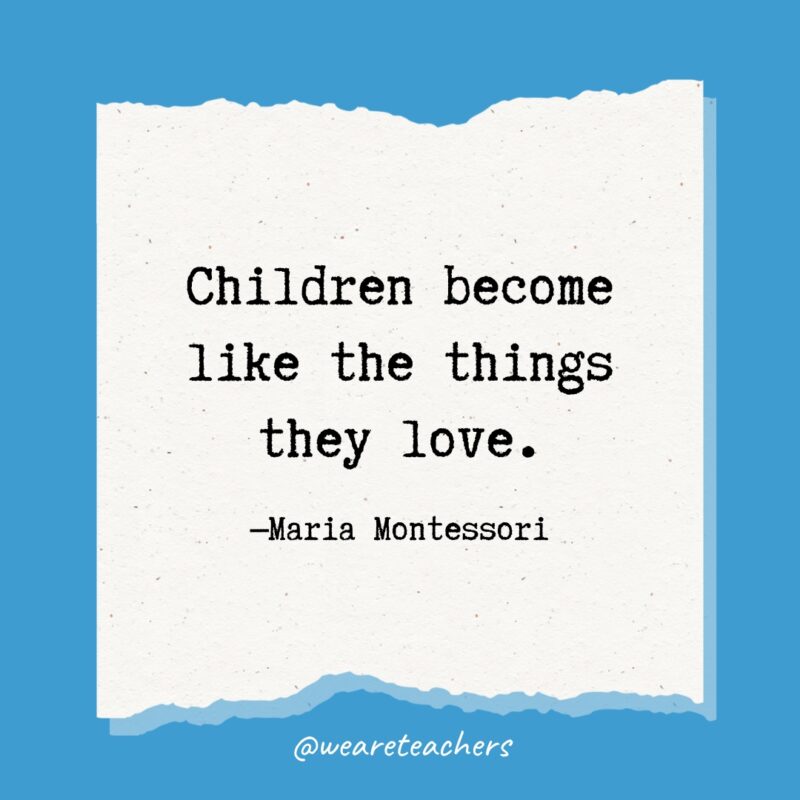
We serve the future by protecting the present.
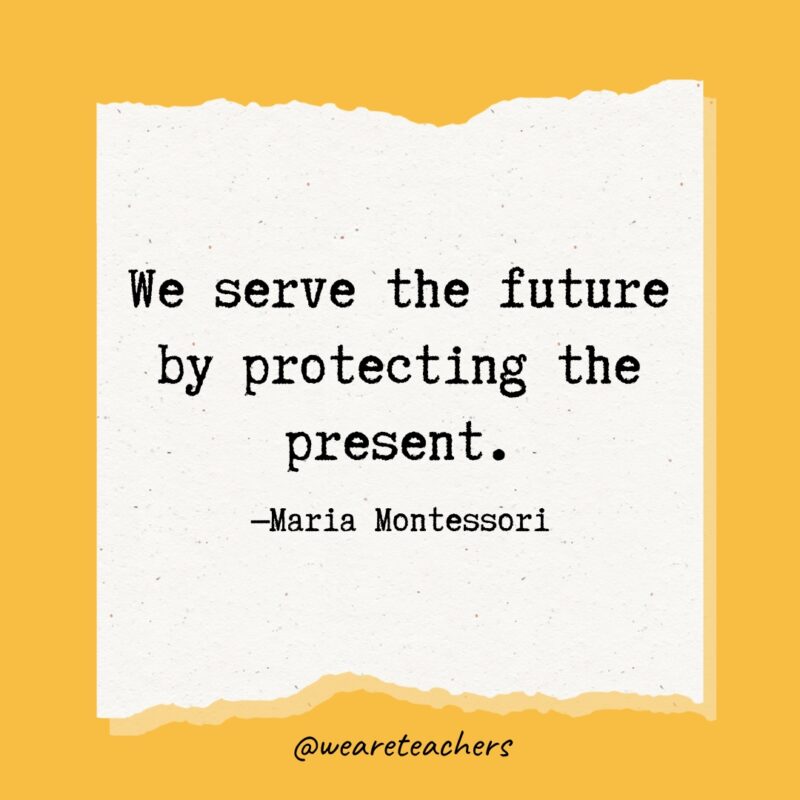
Only through freedom and environmental experience is it practically possible for human development to occur.
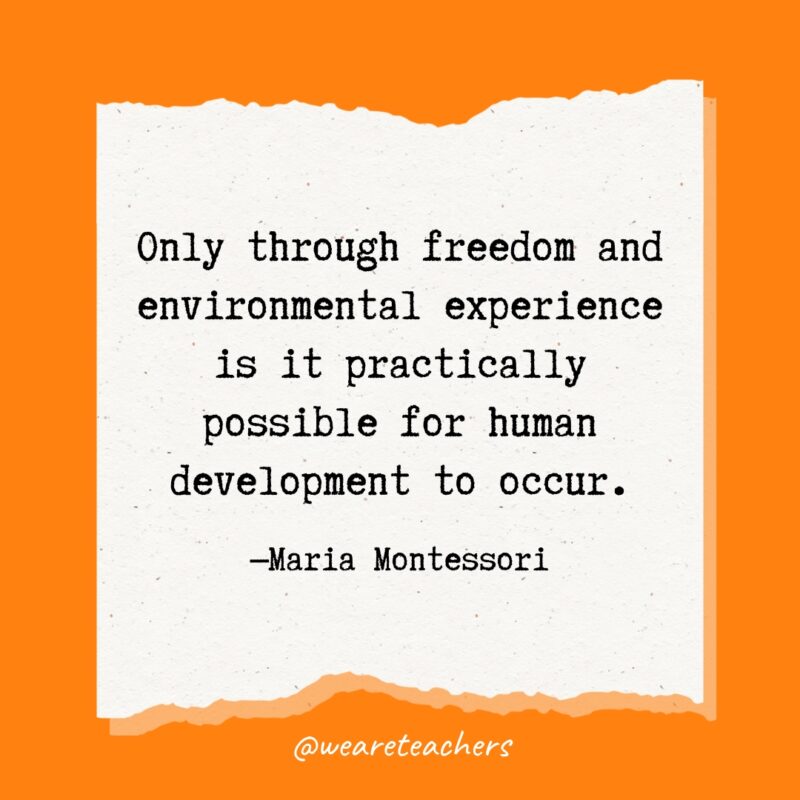
Needless help is an actual hindrance to the development of natural forces.
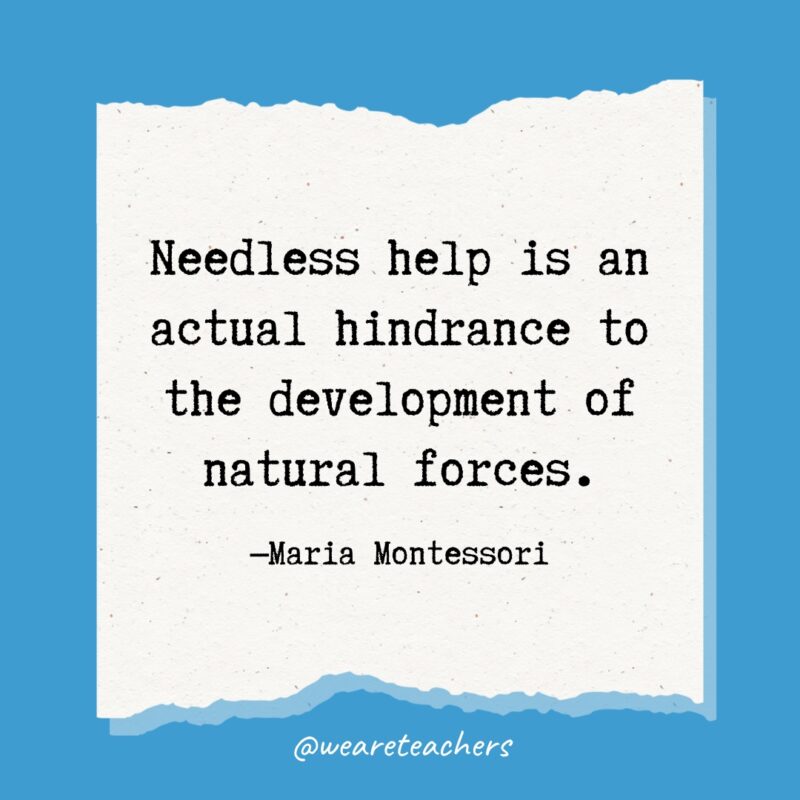
To assist a child is to provide him with an environment that will enable him to develop freely.
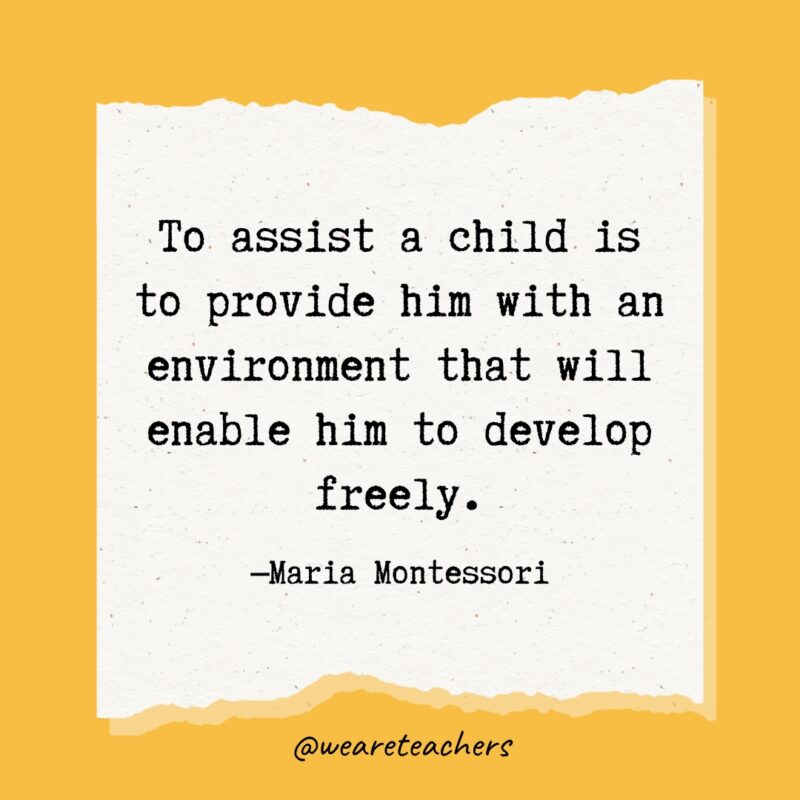
The true basis of the imagination is reality.
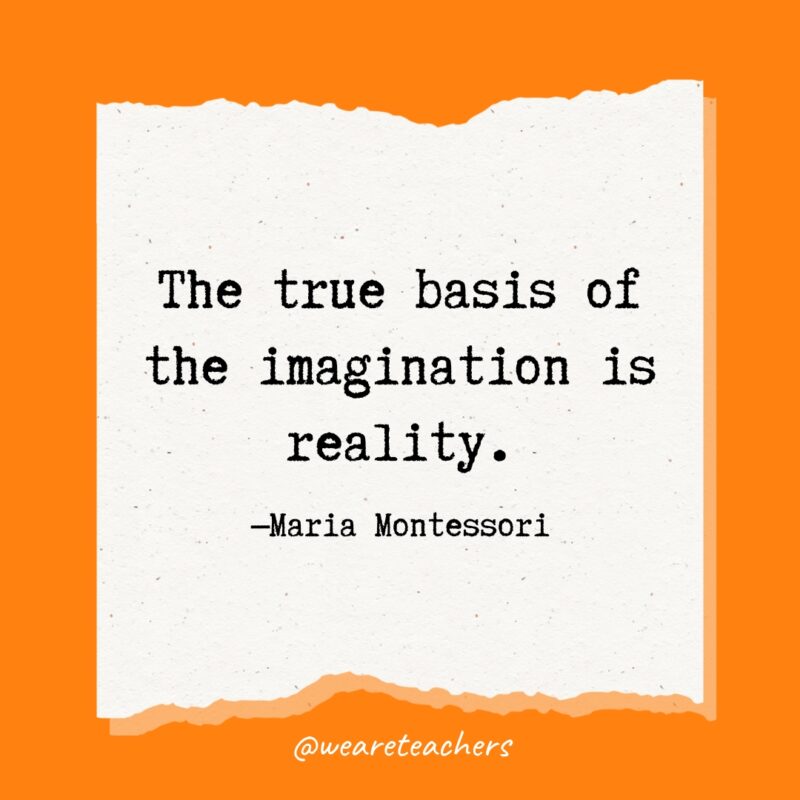
From the child himself he will learn how to perfect himself as an educator.
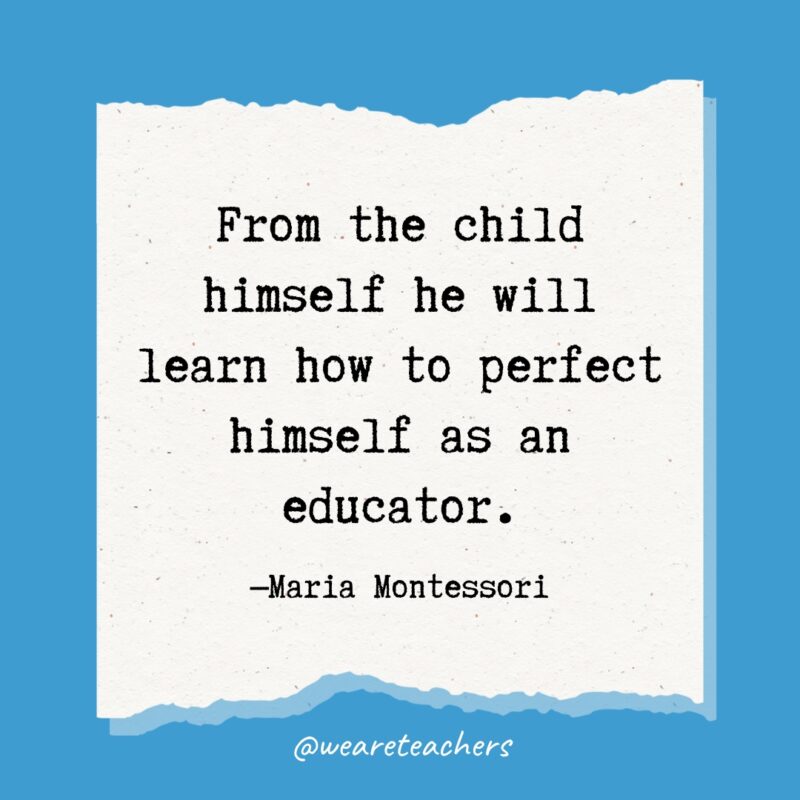
Above all, it is the education of adolescents that is important, because adolescence is the time when the child enters on the state of adulthood and becomes a member of society.
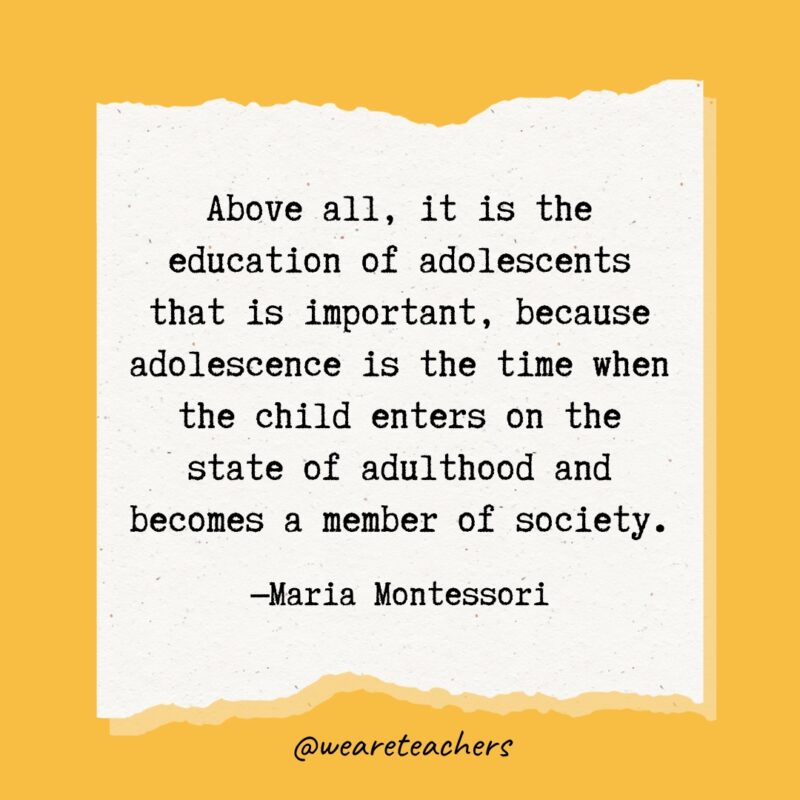
It might be said that the same thing is true of every form of education: A man is not who he is because of the teacher he has had but because of what he has done.
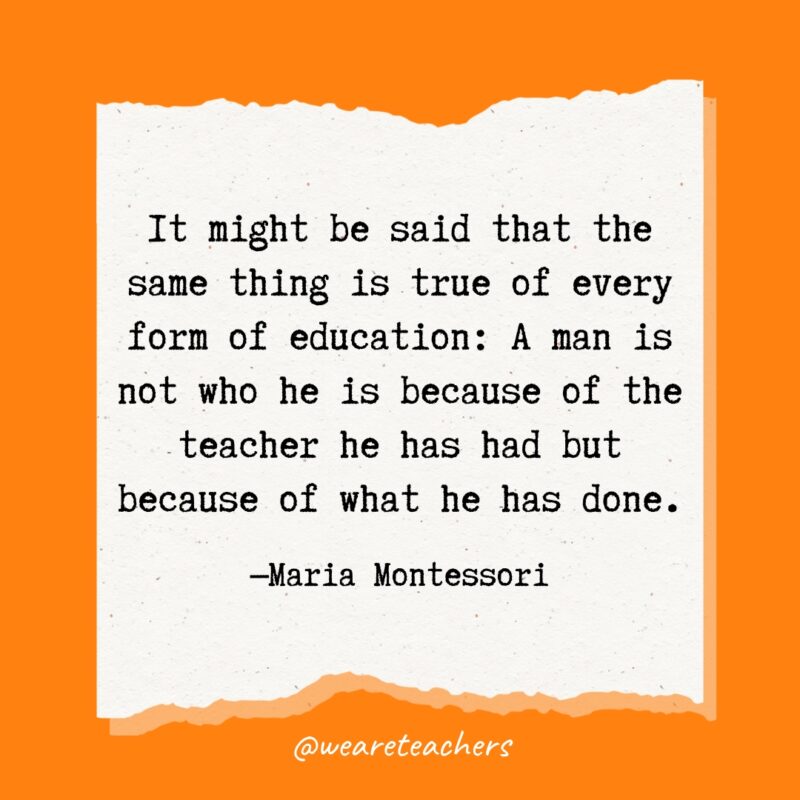
Our joy is to touch and conquer souls, and this is the one prize that can bring us a true compensation.
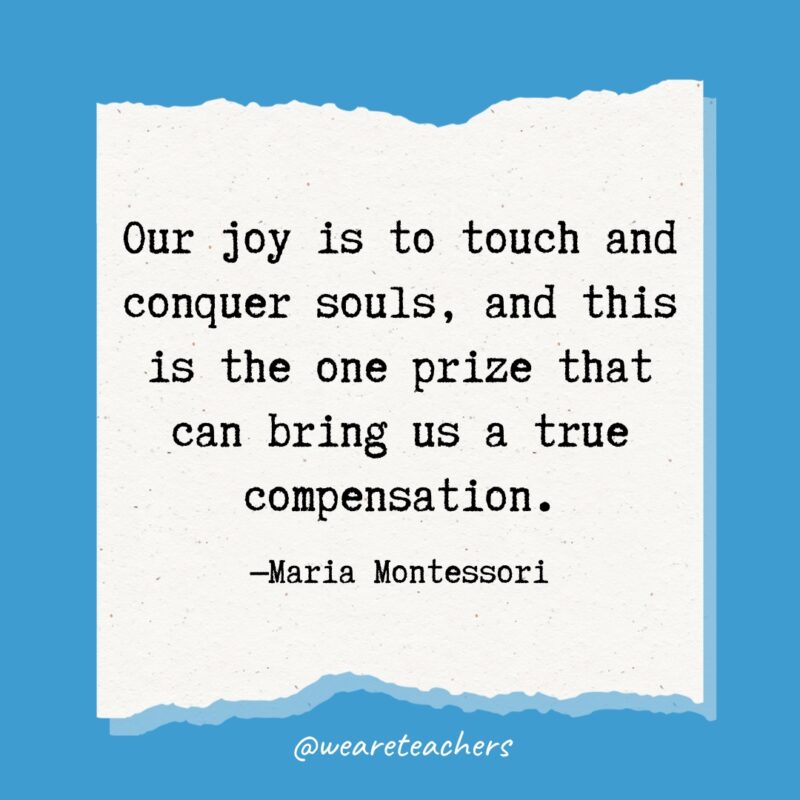
Teach by teaching, not by correcting.
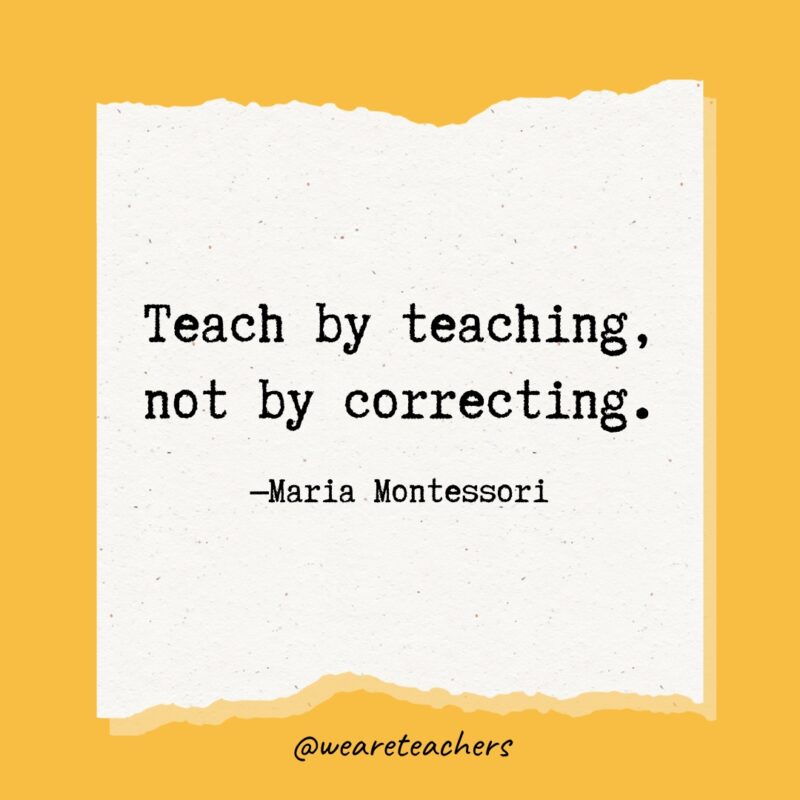
The child has a type of mind that absorbs knowledge and instructs himself.
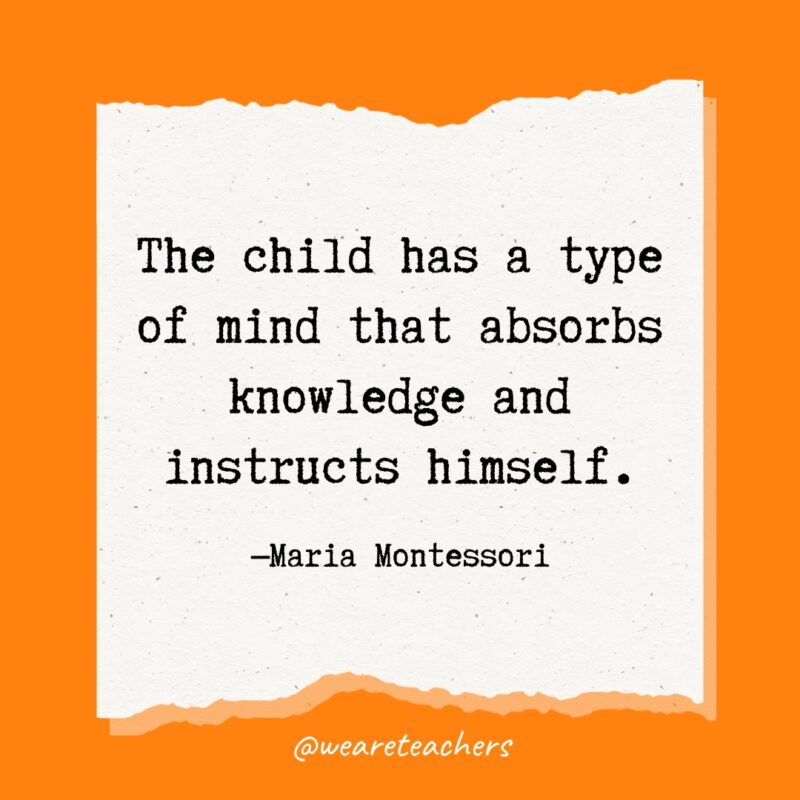
To let the child do as he likes when he has not developed any powers of control is to betray the idea of freedom.
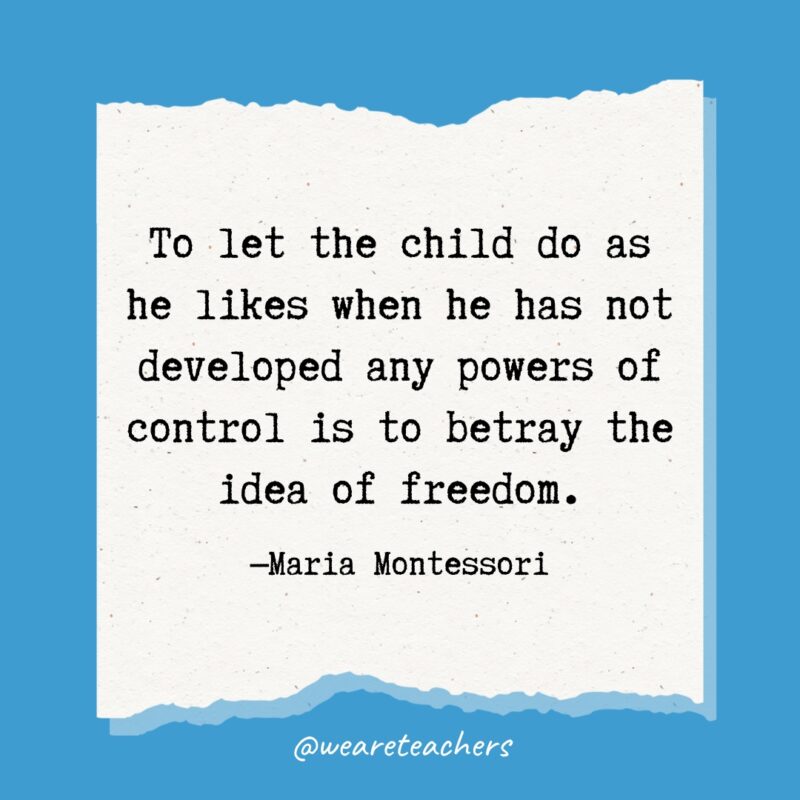
Once a direction is given to them, the child’s movements are made toward a definite end, so that he himself grows quiet and contented and becomes an active worker, a being calm and full of joy.
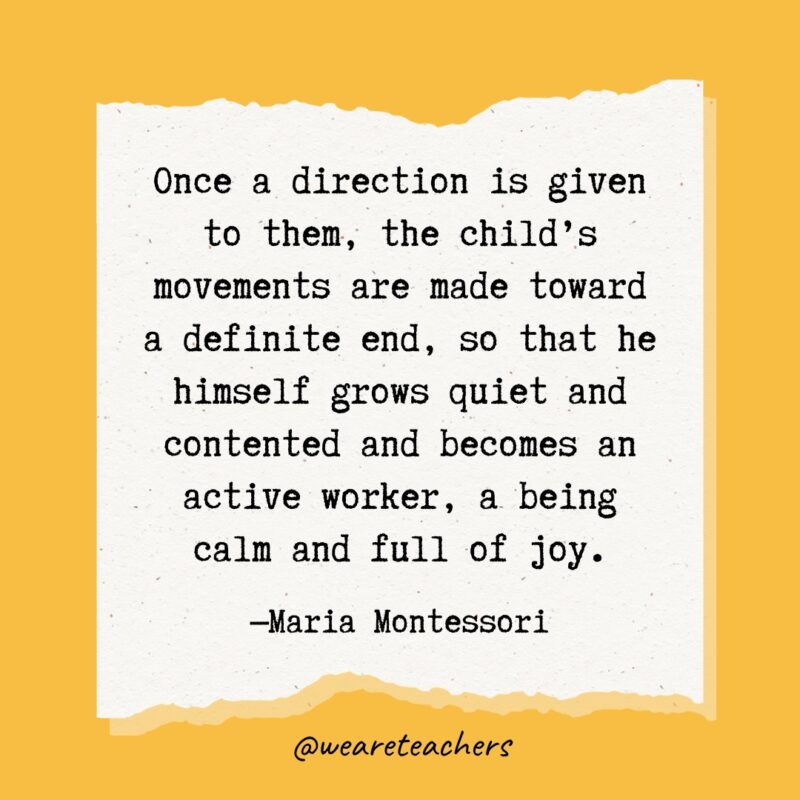
We habitually serve children; and this is not only an act of servility toward them, but it is dangerous, since it tends to suffocate their useful, spontaneous activity.
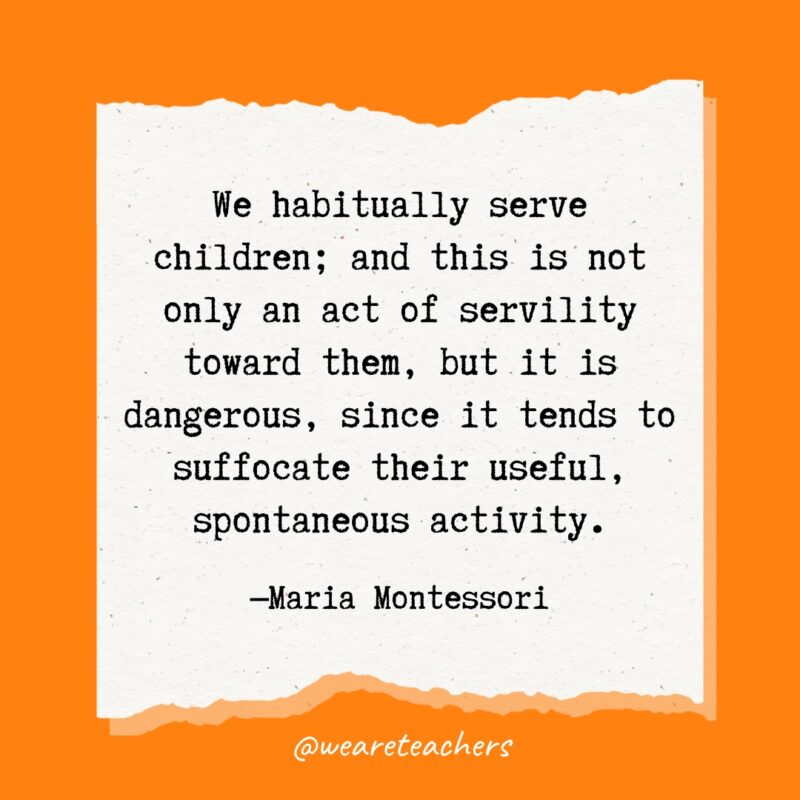
The goal of early childhood education should be to activate the child’s own natural desire to learn.
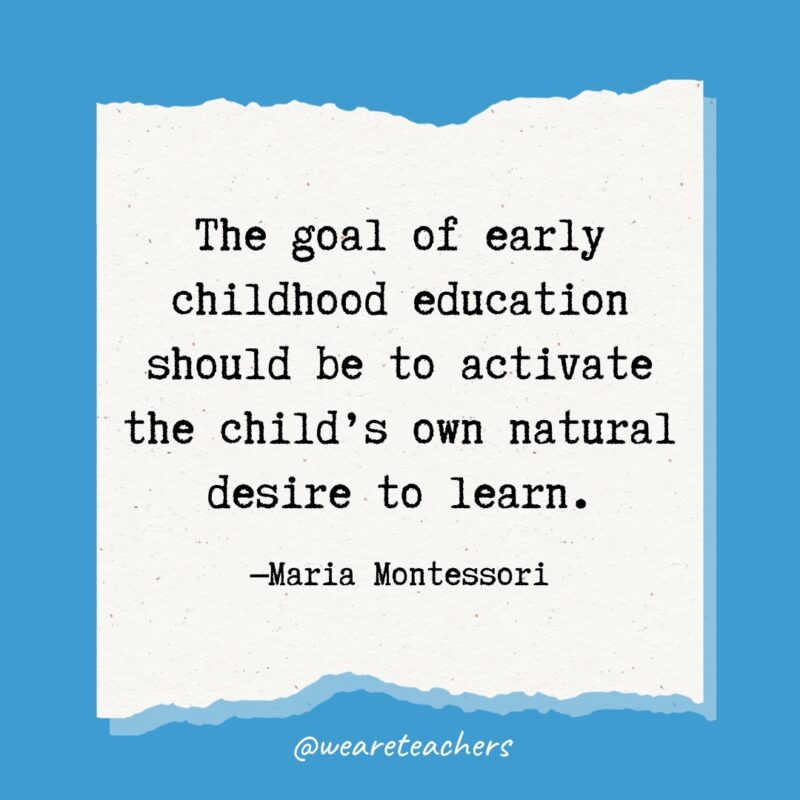
Do not tell them how to do it. Show them how to do it and do not say a word. If you tell them, they will watch your lips move. If you show them, they will want to do it themselves.
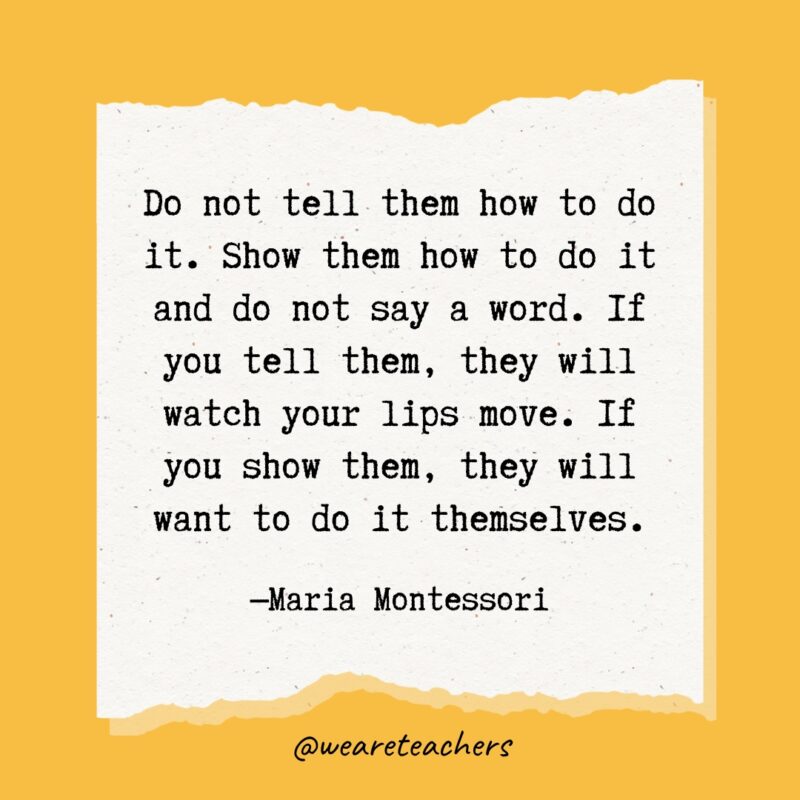
The education of even a small child does not aim at preparing him for school but for life.
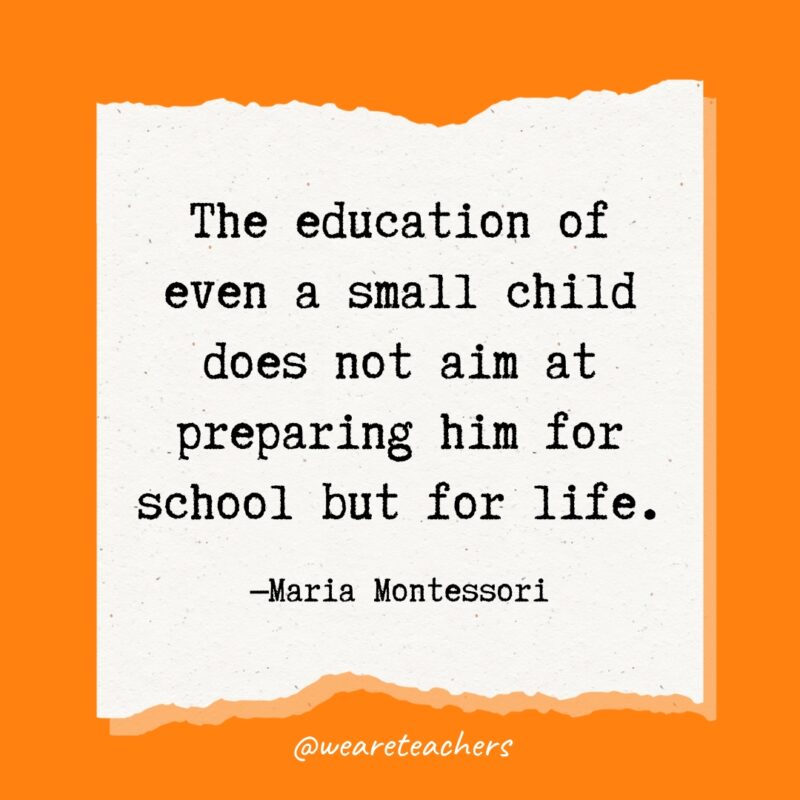
The most important age of life is not the age of university studies, but the first one, the period from birth to the age of 6.
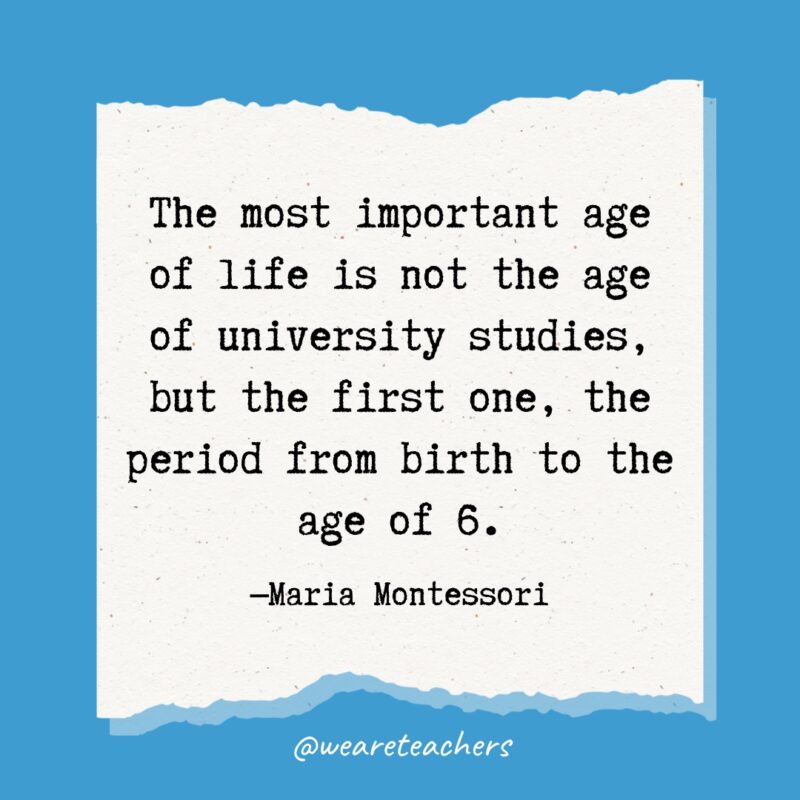
What the hand does the mind remembers.
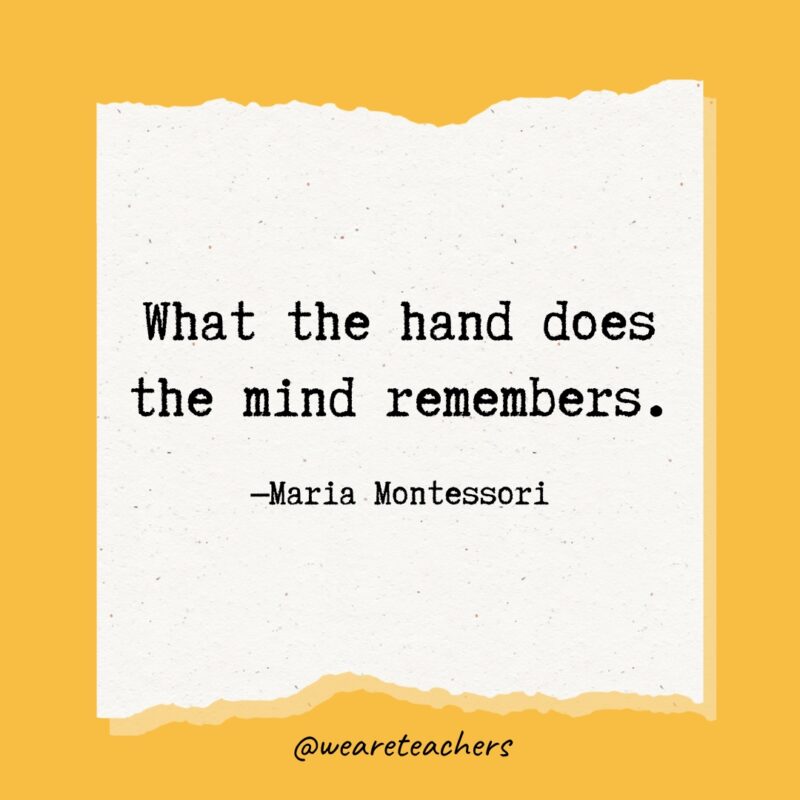
Peace is what every human being is craving for, and it can be brought about by humanity through the child.
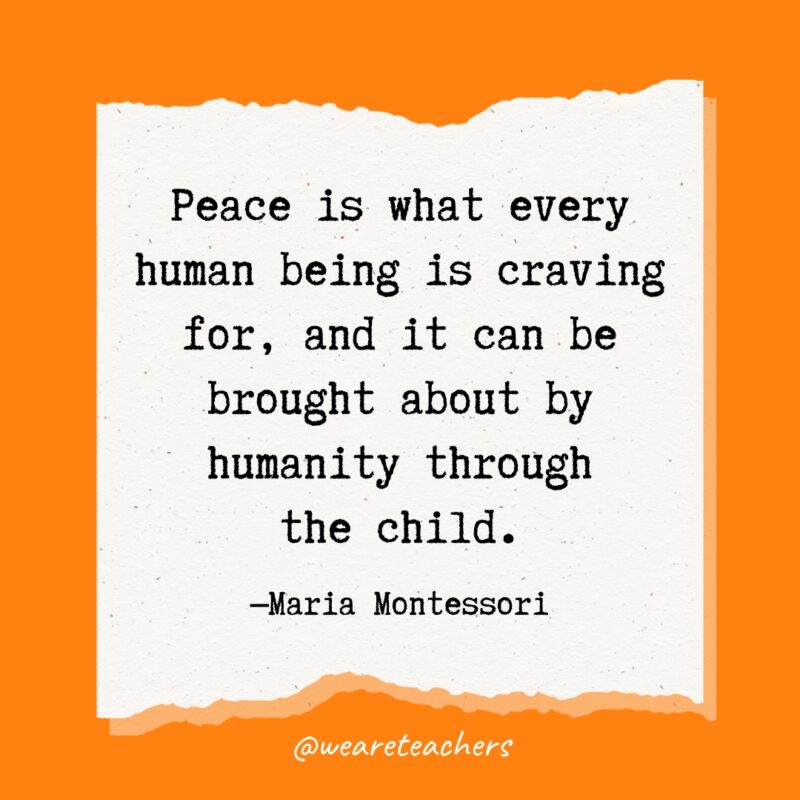
For more on renowned educator Maria Montessori, check out our guide to Montessori furniture and the best Montessori toys.
Come discuss Maria Montessori and education in general in the WeAreTeachers HELPLINE group on Facebook.
[ad_2]
Source link
